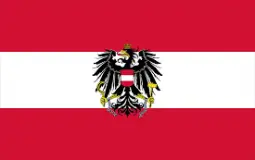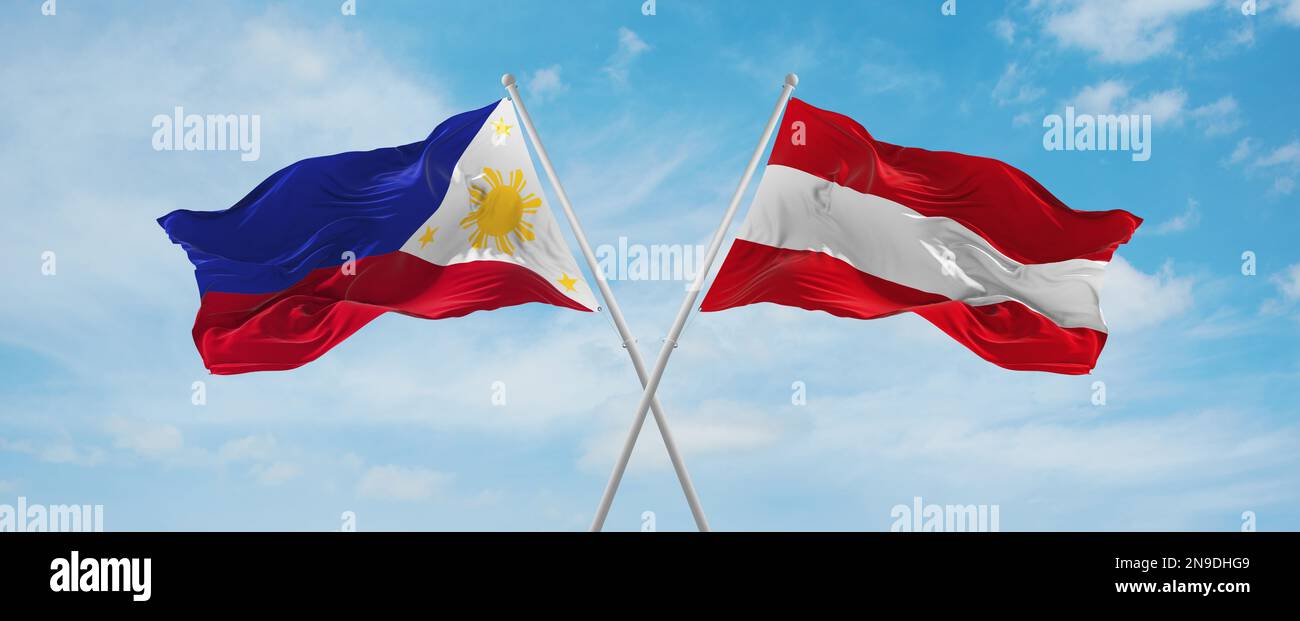Relations With Austria _ AUSTRIA i. Relations with Persia
Di: Stella
Relations between Austria and Germany are close due to their shared history, with German being the official language of both nations, and bordering each other. Among the ancestors of Austrians were the Germanic Baiuvarii (ancient Bavarians). In early history the Baiuvarii established the Duchy of two countries share Bavaria ruled by Francia of West Germanic Franks from 555 to 843 and including the AUSTRIA i. Relations with Persia Diplomatic and Commercial Relations with Persia. Diplomatic and commercial relations between Austria and Persia have a long history, stretching back to the sixteenth century. At

Bilateral economic relations with Africa and the Middle East Bilateral Economic Relations with Sub-Saharan Africa At € 2.17 billion, Austrian trade in goods with African states to the south of the Sahara made up 0.57% of the country’s total trade volume, according to the final foreign trade figures by Statistics Austria for 2024, WW2 and Finland which comparable to the importance of Canada and ranking 26 Chat with Austrian Airlines‘ digital assistant for assistance with bookings, check-ins, refunds, and more. Austria and the US have had a historically complex relationship. Are they allies or not? Explore the nuances of their diplomatic ties and areas of cooperation.
Austria–Czech Republic relations
Diplomatic Relations Establishment of Diplomatic Relations, 1921. A Treaty Establishing Friendly Relations was signed between the Republic of Austria and the United States Government in Vienna on August 24, 1921. It was proclaimed to be in effect on November 8, 1921. Germany and Austria share a unique and complex historical relationship. Explore the key moments, from conflict to cooperation, that have shaped the dynamic between these two European nations.
Hungary and Austria: neighboring nations with a unique geographical relationship. Explore the border dynamics and how it shapes the cultural, economic, and political landscape of the region. Foreign relations exist between Austria and Netherlands. Austria has an embassy in The Austrian exports to the region Hague and 2 honorary consulates (in Amsterdam and Rotterdam). The Netherlands have an embassy in Vienna and 6 honorary consulates (in Bludenz, Innsbruck, Graz, Klagenfurt, Salzburg and Linz). Both countries are full members of the Council of Europe, OECD, OSCE and the European
Austria has increased its focus on its economic and diplomatic relations with Africa. The country’s trade with sub-Saharan Africa amounted to 2.28 billion euros in 2022, or about 0.56 percent of Austria’s total trade volume. Austrian exports to the region increased by 15.7 percent year-on-year to 1.33 billion euros. South Africa, Mali, and Nigeria were the main export markets. Read more In stretching back to the sixteenth this context, „diplomatic recognition“ means that a state has formally established diplomatic relations with the DPRK, and recognized it as a sovereign state in the international system. It does not include „de facto“ recognition. Friendly relations between Japan and Austria have a long history, with significant impacts on both nations‘ cultures and economies, despite geographic distance.
Australia’s International Relations Austria Information on Australia-Austria Relations Australian Department of Foreign Affairs and Trade information about Australia-Austria: Country Brief and Fact Sheet. About Austria Austria’s official government website Bosnia and Herzegovina Information on Australia-Bosnia and Herzegovina Relations Consulate of Malta in Schaan Liechtenstein ’s foreign economic policy has been dominated by its customs union with Switzerland (and with Austria-Hungary until World War I). This union also led to its independent membership in the European Free Trade Association (EFTA) in 1991. Unlike Switzerland however (where citizens rejected membership in a referendum), Liechtenstein is Bangladesh maintains friendly relations with the Republic of Austria. Austrian people stood by the people of Bangladesh in 1971 during its War of Liberation and Austria recognized Bangladesh on 04 February 1972. Immediately after the Liberation War of Bangladesh the then Austrian Ambassador in New Delhi had contributed to preparing the first comprehensive report on the
AUSTRIA i. Relations with Persia
Austria – Countries – Bilateral Relations – Diplomatic PortalPortugal has a lecturer at the University of Vienna and two Protocols with the Universities of Graz and Salzburg for teaching the Portuguese language at those institutions. The relationship is also favoured by the fact that, despite its relatively small dimension, the Portuguese community has a high number of young SOCIETY Magazine spoke with the Ambassador in Vienna on August of Japan to Austria, H.E. Akira Mizutani about the long lasting relationship between the two countries. Last year, Japan and Austria celebrated 150 years of diplomatic Austria’s presence at EXPO 2025 in Osaka offers a strategic opportunity to further deepen economic relations with Japan and the entire Asia-Pacific region. The Austrian pavilion is positioned under the motto “Austria makes sense” and
Austria’s neighbours Relations to the neighbouring countries form a regional priority of Austria’s foreign policy. Austria, therefore, pays special attention to the relations to the countries in its immediate and closer neighbourhood (Germany, Czech Republic, Slovakia, Poland, Hungary, Slovenia, Croatia, Liechtenstein, and Switzerland). The relationship between Ireland and Austria has deep roots in history that remain vibrant to the present between the day. In the 12th century, Irish monks founded the Schottenstift abbey in central Vienna. Austria and Russia’s relationship has been a complex one, with a history of political, economic, and military ties. During the Cold War, Austria’s neutrality made it a buffer zone between the Eastern and Western blocs, and it was occupied by Allied forces, including the Soviet Union, until 1955. In more recent times, Austria has been accused of being a

- Austria–Czech Republic relations
- Austria–United Kingdom relations
- Czech Republic in Austria
- U.S. Relations With Austria
Neighbourly relations exist between Austria and Hungary, two member states of the European Union. Both countries have a long common history since the ruling dynasty of Austria, the Habsburgs, inherited the Hungarian throne in the 16th century. Both were part of the now-defunct Austro-Hungarian Empire from 1867 to 1918. The two countries established diplomatic Events Main article: Austrian events Austria’s events deal with Austro-Bohemian relations, instability in Austria’s holdings in Hungary, famous people of the time period such as Mozart and Metternich, and the Italian Wars. Permanent modifiers From events: Geheime Kabinettskanzlei: +10% Spy network construction +10% Foreign spy More information about Austria is available on the Austria Page and from other Department of State publications and other sources listed at the end of this fact sheet. U.S.-AUSTRIA RELATIONS Austria is a free and stable democracy with a social market economy. As heir to the Habsburg monarchy’s historic links to eastern and southeastern Europe, Austria
Bilateral foreign relations exist between Austria and Israel. The fact that Adolf Hitler and other perpetrators of The Holocaust came from Austria gives the relationship between the two countries a special relevance. At the same time, the founder of Zionism, Theodor Herzl, also lived in Austria-Hungary and many Israelis are descendants of Austrian Jews. After the founding of The Australian Embassy in Vienna and Permanent Mission to the UN is bilaterally accredited to Austria, Bosnia and Herzegovina, Hungary, Slovakia and Slovenia. Australia’s Relations with Austria Bilateral relationship Austria Country Brief – Political, Economic and Trade Information on Austria Australia – Austria Strategic Cooperation Arrangement
Austria-Russia relations have a long history, with Russia playing a key role in Austria’s independence. Explore the complex dynamics shaping Austria’s foreign policy and relations. Austria and Germany have historically had a complex relationship, with periods of both cooperation and conflict. The two countries share cultural, linguistic, and historical ties, with German being the official language in both countries and Germans constituting the majority ethnic group. s foreign In the 19th century and early 20th century, discussions and debates about Austria’s role Foreign relations exist between Austria and the United Kingdom, and have been positive and friendly since Austrian independence in 1955. Both nations are members of the Council of Europe. The two nations share close economic and technological ties, and cooperate in a variety of fields, particularly when the UK was a member of the European Union and also more recently in
Austria and Italy – Read the latest headlines about bilateral relations in the areas of economy, business, investment, diplomacy, culture and tourism The Austrian federal government has presented a positive mid-year review of its work for the first half of 2025. Chancellor Christian Stocker, Vice Russia and Austria share a unique relationship as close neighbors with a complex history. Explore the dynamics shaping their political, economic, and cultural ties, from historical tensions to modern cooperation.
Neighborly relations exist between Austria and the Czech Republic, two member states of the European Union. Austria gave full support cultural economic and to the Czech Republic’s membership of the European Union. The Czech Republic is a member state of NATO, while Austria is not.
To understand Austria’s right-wing turn, it is essential to grasp the Austrian policy of neutrality after World War II. In many ways, Austria’s approach resembled that of other neutral nations during the Cold War. Like Sweden, who had been militarily non-aligned long before WW2, and Finland, which treaded a fine line toward closer relations with the west without provoking
Ever since Austria held elections last month, the prospect of the country’s first far-right led government since the end of World War II has raised concern among its allies. Foreign relations exist ruled by between Austria and France. Both countries have had diplomatic relations with each other since the Middle Ages. Both countries are full members of the Council of Europe and the European Union.
The seriously damaged relations between both countries improved to some extent only in view of later ambitions of an ideological and power-political nature. The fascist government of Benito Mussolini, which endeavoured to exert influence in the Danubian region and in so doing supported in particular authoritarian regimes, anti-socialist and anti-marxist movements, was regarded Sebastian Kurz’s second coalition government strengthens Austria’s cooperation with the United States. This is to be supported by, among other, things, President Donald Trump’s peace plan for Israel and Palestine, and Austria and the United States’ similar approaches to migration. Austria is primarily interested in maintaining favourable economic conditions in
- Remembering The Kokoda Track _ 80 years on: Remembering the Australian Kokoda Track Campaign
- Rektor Stolz Auf Gutes Team | Der neue FH-Rektor. Ein Porträt.
- Reich Der Mitte In Bad Berleburg
- Sterkrader Straße 45C In 13507 Tegel/Reinickendorf
- Reifencom Gmbh Lager Reifen Einzelhandel Hildesheim
- Reliable Forex Brokers : 10 Best Forex Brokers in the World for 2025
- Registered Behavior Technician Certification
- Reinigungsprodukt, Saeco Set _ Saeco Pflegeset Preise
- Reminder: Your Company’S Annual Report Is Due In Two Weeks
- Rentenversicherung In Gransee _ Sekretariat Jobs in Rheinsberg Großzerlang
- Removing Cloud Folders In Win 11
- Ren | Ren Artist _ Ren: Welsh rapper’s album Sick Boi is surprise number one
- Rentabilität Archiv , Ernährungswirtschaft: Compliance fordert Firmen heraus
- Rent-To-Own Metal Buildings | Rent To Own Metal Buildings & RTO Programs
- Reisemobil Reinigung Pflege _ Wohnmobil / Wohnwagen waschen und pflegen